Care/of Fish Oil Review
Table of Contents
About Care/of Fish Oil
We’ve all heard of doctors tailoring a prescription list for you, but have you heard of a supplement company doing that? If you haven’t, I’m here with a Care/of Fish Oil review to tell you how one company does just that, all from the comfort of your home!
Despite being relatively new, Care/of has been featured in Business Insider, Elle, BuzzFeed, and The Coveteur. With 249k Instagram followers, Care/of is a subscription-based trendy supplement brand that promises to provide you with personalized supplements ranging from vitamins to herbal formulations.
In this review, I’ll take a look at the company’s background and mission, this product’s details, ingredients, and some side effects. So, let’s dig in.
Overview of Care/of Fish Oil
With its headquarters in New York City, Craig Elbert and Akash Shah founded Care/of in 2016. They teamed up to develop a line of natural supplements to suit your individual needs.
How does a company claim to design a supplement list just for you? We’re glad you asked. Their website asks you to take an interactive 5-minute quiz with questions about your diet, lifestyle, and current symptoms.
Based on your answers, they suggest a list of supplements and send you supplements with your name on them. You pick and choose from that list. Neat, isn’t it?
But, if you have an eagle eye like this Care/of Fish Oil review, you probably realize that the list may not be an accurate depiction of your actual needs. Real-time blood test results and expert opinions trump any quiz you take online. Be aware of these kinds of recommendations!
On a brighter note, they have a board of MDs, PhDs, and nutrition experts for their product development based on the latest research.
Talking about research, Care/of rates its products anywhere from having “very strong research” to “limited research.” On that note, while writing this Care/of Fish Oil review I noticed that the company says there is “good research” to support this product.
What’s even more interesting about Care/of is that they have a free downloadable app from the Apple App Store or Google Play. This app allows you to see your history, make changes to your order, and track your daily intake of supplements.
Are you interested in knowing more? You even get rewards when you remember to take your supplements a few days in a row, giving you discounts on your future purchases!
Okay, now that you have a good idea about the company itself, let’s dive straight into this product’s highlights.
Highlights
- Non-GMO and gluten-free
- Made using a cold-pressed extraction process which allows preservation of nutrients
- Ingredients supported by several double-blind clinical studies
- Made with wild caught Alaskan salmon, caught using sustainable methods
- Research shows several benefits for heart and brain health
- 30-day return policy
- App to track your orders and daily intake of supplements
Care/of Fish Oil Review
Before I dig deeper in this Care/of Fish Oil review, I believe it’s important to explain how we get fish oil.
A study[1] done 30 years ago on Greenland Eskimos kicked off this interest in fish oils. It showed that despite their diet being high in fat, they had low rates of heart disease. One reason was their high intake of fish in their diet. It makes sense that the sales[2] of fish oils went over $1 billion by 2012.
Fish oil is extracted from fatty fish such as salmon, mackerel, tuna, and herring for its beneficial fatty acids called omega-3 fatty acids. Care/of Fish Oil is sourced from wild Alaskan salmon, one of the highest[3] sources of omega-3.
We have two omega-3 that are highly prevalent in fish: EPA and DHA. These stand for eicosapentaenoic acid and docosahexaenoic acid. To be beneficial, there has to be a certain amount of each.
This fish oil is extracted using a cold-press extraction process. This is good news because heat can destroy the nutrients of fish oil such as Vitamins A, D, and E. The cold-press process is a low-cost, green way[4] to produce high-quality fish oil.
I’m sure you’re concerned about the mercury levels in fish. The good news is that fish oil does not contain any mercury because mercury is water-soluble, not oil-soluble. However, concerns about other organic pollutants and heavy metals are valid. So a good testing process and certification are required.
Although Care/of Fish Oil claims to test their product three times, there is no certified seal or mention that their products are manufactured under cGMP or tested by third parties.
Are you interested in its cost? A 30-day supply costs $16. As I mentioned before, this product does not come in a bottle. These golden pearls are individually packaged in compostable packets with your name on them.
I’m now sure you can’t wait to hear more about the magical effects of omega-3s. So continue reading this Care/of Fish Oil review since I got all these details covered.
Who Is Care/of Fish Oil For?
If you don’t like eating fish and can’t get the recommended two servings of fish a week in your diet, then this supplement is for you. Although omega-3s can be found in plant sources, they are direct sources of alpha-linolenic acid, another type of omega-3. The process of converting ALA to EPA and DHA in our bodies is not efficient[5].
Who else can take it? If you suffer from heart disease or any other disease such as arthritis and autoimmune disease, this supplement can benefit you. Studies[6] have also shown the benefits of omega-3s, especially EPA and DHA, for developing the fetus’s nervous system. So pregnant women can benefit from fish oils as well.
What Are The Benefits Of Care/of Fish Oil?
As mentioned, omega-3 comes with a bunch of benefits which I will be diving into now. Their usefulness for the heart and brain are more commonly known, but did you know they are also good for our joints, eyes, and prenatal health? Keep reading this Care/of Fish Oil review to find out more.
Heart Health
Sadly, heart disease has been the leading[7] cause of death in the US. So we all need to do our part in lowering risk factors associated with heart disease through diet, lifestyle, and supplements.
In some studies[8], fish oil has been shown to increase our good HDL cholesterol. But studies on its effect on our bad LDL cholesterol are conflicted. Some show no effect, while others show an increase[9] in LDL or even a decrease[10]. The evidence of fish oil and its impact on LDL is limited.
Some other studies have shown that fish oil can also lower[10] your triglyceride levels. However, no effects[11] were found on blood sugar levels.
But the research[12] on fish oil looks promising for lowering blood pressure. Studies[13] have also shown that omega-3 between the doses of 0.45g to 4.5g per day significantly improve the functioning of blood vessels in the heart.
In this Care/of Fish Oil review, I would like to mention that although these benefits look very promising, to improve your heart health, lifestyle and diet changes should also be made in conjunction.
Brain
The evidence for heart disease and anti-inflammatory benefits is widespread, but it isn’t as clear for cognitive benefits. Some studies[14] done with high DHA content of fish oil show cognitive benefits.
DHA is the primary fatty acid[15] in your brain and retina. So DHA supplementation through diet alone or supplements is beneficial for those parts, although I’m not sure about the amount needed.
On the brighter side, some studies[16] have shown that omega-3s can treat and prevent some brain disorders like Alzheimer’s and depression.
Joints
Studies[17] have that omega-3 in fish oils can relieve Rheumatoid Arthritis symptoms. However, in this study, patients were also consuming an anti-inflammatory diet.
Some other studies[18] have shown improvements in symptoms of RA patients when they consumed fish oil with a Mediterranean diet, which means less sweets and red meat. Omega-3 does this by helping lower the existing inflammation in the body. The diet prevents further inflammation from happening in the body.
Eyes
Some studies have also shown[19] that fish oil can play an important role in helping people suffering from dry eyes.
How Does Care/of Fish Oil Work?
One thing to look for in fish oil supplements is the ratio of EPA and DHA. Studies show a ratio between 2:1 and 1:2 works best. However, the American Heart Association recommends a total of 1g of EPA/DHA for people suffering from heart disease.
I’d like to put on my teacher hat in this Care/of Fish Oil review and tell readers that there is another type of fatty acid called omega-6. Suffice it to say, with our Western diets filled with fast foods, baked goods, and vegetable oils, we don’t have to worry about getting enough omega-6 in our diet.
You might have heard that everything is good in moderation. It’s important here because although omega-6 in moderation is good, too much can lead[20] to harm and inflammation. This inflammation can lead to heart disease or cancer, and other diseases.
Inflammation in simple terms means that your body is fighting a war and trying to win. In some ways, that is a good thing, like when you get a cut and inflammation heals your cut. But ongoing inflammation is not good and can lead to disease.
Now, back to the omega discussion. Although we get enough omega-6 in our diet, omega-3 is missing. This is why there are a ton of omega-3 supplements on the market like the one I’m talking about.
Want to hear a fun fact? Did you know that fish doesn’t produce omega-3s? They feed on algae which contain omega-3 fatty acids. If you are raising your eyebrows and asking why we don’t take algae oil instead, then I’m with you!
Given the increasing demand for omega-3s in our diet, fish are under a lot of pressure today. As a result, we have farmed fish to meet those demands. Although there are pros and cons to both wild and farmed fish, we need alternative sources of omega-3s, specifically EPA and DHA.
This is where algal oils come into the picture. Research[21] makes algal oils look promising as a vegan and more sustainable[22] source of Omega-3s.
In addition, some studies[23] found algal oils to be nutritionally similar to salmon. It is important to remember that, just like fish, the amount of omega-3s also varies in algae and depends on several factors.
What Are The Ingredients In The Care/Of Fish Oil?
One two-capsule serving of Care/of Fish Oil contains 2,000mg of wild Alaskan salmon oil as the active ingredient, out of which there is 600mg of omega-3 fatty acids.
EPA content in this is around 180mg, and DHA is about 220mg. So the ratio of EPA:DHA is about 0.8.
If you remember from our discussion about EPA and DHA, a ratio between 2:1 and 1:2 works best. So, the product follows the current research by having an acceptable ratio of 0.8. But is it enough for people with heart disease? Probably not. I recommend you talk to your doctor.
Apart from the active ingredients, it is always good to look at the inactive ingredients. Care/of Fish Oil uses gelatin from cows and glycerin to give the pill its soft gel properties.
There are also mixed tocopherols in this supplement. These are a mixture of natural vitamin E[24] that work as an antioxidant in our bodies. They preserve freshness[25] and prevent the pill’s oils from going bad.
How to Take Care/of Fish Oil And Dosage
The product website recommends taking two pills of this supplement with a meal. Depending on what you are taking fish oil for, you should discuss with your doctor for the right dosage.
Next up in this Care/of Fish Oil review, I will discuss some of its side effects.
Care/of Fish Oil Side Effects
Care/of Fish Oil side effects are rare, but taking high doses of fish oil can lead to adverse reactions.
Since fish oils contain omega-3 fats, they can be hard to digest for some people. Fats are digested very slowly and can lead to digestive symptoms[26] like nausea, heartburn, and feelings of fullness[27]. Taking this supplement with food is advised.
Also, instead of taking two soft gels at once, you can take one in the morning and one later in the afternoon to help with digestion.
Some studies[28] show that very high doses of 8g per day could increase blood sugar in people with diabetes. However, research is not conclusive. Care/of Fish Oil contains 600mg of omega-3s, which is not as high as 8g.
To finish, you should stop taking this supplement if you suffer from side effects. You can try lowering the dose by taking one soft gel or getting your omega-3 intake from food instead. If you are vegan, try consuming algal oil for your omega-3 needs.
This Care/of Fish Oil review would be incomplete without any customer reviews. I’m sure you can’t wait to read what buyers say about this product.
Care/of Fish Oil Reviews: What Do Customers Think?
Unfortunately, since you can only buy this product from Care/of’s official website, I can’t look at multiple sources for customer reviews. There are around 2,472 reviews of the supplement with an average rating of 4.7/5 stars.
Bear in mind these reviews are not specific to Care/of Fish Oil.
One happy subscriber said: “I absolutely love this company. The products are excellent quality and the convenience of having it delivered to my door is a huge benefit for me. There is a great variety of products to choose from and it is very easy to modify your order if and when you need to. Give it a try!”
Another customer commented on the quiz and how user-friendly Care/of’s app is: “Love these so much. The app is very user friendly. I really appreciate all the descriptions and medical testing for every vitamin and supplement. The quiz was so helpful to get me started in the right direction!”
It seems that overall, Care/of users love the company’s personalized approach. Pair that with results from taking Care/of Fish Oil and you’ve got a bunch of happy customers! Speaking of which…
A third satisfied buyer wrote: “These supplements have really seemed to help me, I have been on them for about 3 months and I have felt such a difference. More energetic and more well-rounded.”
As for negative reviews, all 1-star and 2-star reviews mainly complained about long shipping times and customer service. But the extended shipping times could be due to the effort they put into personalizing your supplements.
I understand that these reviews aren’t constructive in giving you feedback on the Fish Oil itself, but I know that they have made the whole process of taking supplements quite interactive, user-friendly, and frankly, fun!
Is Care/of Fish Oil Worth It?
Are you still wondering if you should start a subscription with Care/of? The not-so-great news is that since I couldn’t find any third-party testing done on this product, I can’t be sure it is free of any heavy metals or other pollutants. However, their social media following, personalized supplements, and research grading on each product look tempting.
In the end, due to the lack of testing, specific customer reviews, and required subscription commitment, Care/of may or may not be for you.
Care/of Fish Oil Promotions & Discounts
If you subscribe to their email list, you will get $25 off. You can also currently use the promo code: 25OFFOVER50 to get $25 off when you spend more than $50.
Where to Buy Care/of Fish Oil
Since this brand is a personalized subscription-based brand, you cannot buy its products through other retailers. The only place you can buy these products is through their website.
FAQ
How many Care/of Fish Oil should I take daily?
You should take two softgels every day. Depending on your current health, you may be recommended to take more or less, so make sure you talk to your doctor first.
Should I take Care/of Fish Oil with food?
You should take Care/of Fish Oil with food to reduce any digestive issues.
Is Care/of Fish Oil vegan?
No. This product contains gelatin from cows, and the fish oil is sourced from wild Alaskan salmon.
Is Care/of Fish Oil gluten-free?
Yes. This product does not contain any gluten.
What are the supplement facts of Care/of Fish Oil?
Each serving of two softgels has 20 calories. There is also 2g of total fat, out of which 0.5g is saturated fat. There is also 15mg of cholesterol per serving. This supplement contains 2,000mg of fish oil.
What is Care/of’s Shipping Policy?
Care/of ships its products to the US and Canada only. Orders over $30 get free shipping. There is an extra $6 handling fee for orders to Canada.
Shipping takes 7-10 days after the first order has been made due to the brand’s unique way of personalizing the supplements. After that, it takes 3-5 days for your next US shipments, but may take longer for Canadian orders.
What is Care/of’s Return Policy?
They have a 30-day return policy, no questions asked. If you are unsatisfied with the product, you can cancel the subscription altogether. If you have other supplements you get from the company, you can modify your list through the app at any time. There is also an option of delaying an order if you already have enough.
How to Contact Care/of Fish Oil
While I gave you a lot of information in this Care/of Fish Oil review, you may have some questions about this supplement. If so, you can contact the company using one of the below methods:
- Phone: 1-877-227-3631
- Email: [email protected]
Check out similar reviews you might find useful:
Onnit New Mood Supplement Review
UMZU Natural Supplements Review
Rae Wellness Supplements Review
Article Sources
- Harris, W. S. Fish oil supplementation: evidence for health benefits Cleveland Clinic journal of medicine, 71(3), 208-221
- Grey, A., & Bolland, M. Clinical trial evidence and use of fish oil supplements JAMA internal medicine, 174(3), 460-462
- Covington, M. Omega-3 fatty acids American family physician, 70(1), 133-140
- Fouda, T. Using green cold pressing to produce high quality fish oil from industrial Salmon waste ResearchGate Journal of Zoological Research, 2(1)
- Burdge G. C. Metabolism of alpha-linolenic acid in humans U.S. National Library of Medicine Prostaglandins, leukotrienes, and essential fatty acids, 75(3), 161–168
- Coletta, J. M., Bell, S. J., & Roman, A. S. Omega-3 Fatty acids and pregnancy U.S. National Library of Medicine Reviews in obstetrics & gynecology, 3(4), 163–171
- Heron, M., & Anderson, R. N. Changes in the leading cause of death: Recent patterns in heart disease and cancer mortality NCHS data brief, 254
- Balk, E. M., Lichtenstein, A. H., Chung, M., Kupelnick, B., Chew, P., & Lau, J. Effects of omega-3 fatty acids on serum markers of cardiovascular disease risk: a systematic review U.S. National Library of Medicine Atherosclerosis, 189(1), 19–30
- Friedberg, C. E., Janssen, M. J., Heine, R. J., & Grobbee, D. E. Fish oil and glycemic control in diabetes U.S. National Library of Medicine A meta-analysis. Diabetes care, 21(4), 494–500
- Ras, R. T., Demonty, I., Zebregs, Y. E., Quadt, J. F., Olsson, J., & Trautwein, E. A. Low doses of eicosapentaenoic acid and docosahexaenoic acid from fish oil dose-dependently decrease serum triglyceride concentrations in the presence of plant sterols in hypercholesterolemic men and women U.S. National Library of Medicine The Journal of nutrition, 144(10), 1564–1570
- Friedberg, C. E., Janssen, M. J., Heine, R. J., & Grobbee, D. E. Fish oil and glycemic control in diabetes: A meta-analysis U.S. National Library of Medicine Diabetes care, 21(4), 494–500
- Miller, P. E., Van Elswyk, M., & Alexander, D. D. Long-chain omega-3 fatty acids eicosapentaenoic acid and docosahexaenoic acid and blood pressure: a meta-analysis of randomized controlled trials U.S. National Library of Medicine American journal of hypertension, 27(7), 885–896
- Wang, Q., Liang, X., Wang, L., Lu, X., Huang, J., Cao, J., Li, H., & Gu, D. Effect of omega-3 fatty acids supplementation on endothelial function: a meta-analysis of randomized controlled trials U.S. National Library of Medicine Atherosclerosis, 221(2), 536–543
- Samaneh Ghasemi Fard, Fenglei Wang, Andrew J. Sinclair, Glenn Elliott & Giovanni M. Turchini How does high DHA fish oil affect health? A systematic review of evidence Taylor & Francis Online Critical Reviews in Food Science and Nutrition, 59:11, 1684-1727
- Singh, M. Essential fatty acids, DHA and human brain SpringerLinks Indian J Pediatr 72, 239–242 (2005)
- Bazinet, R. P., & Layé, S. Polyunsaturated fatty acids and their metabolites in brain function and disease U.S. National Library of Medicine Nature reviews. Neuroscience, 15(12), 771–785
- Adam, O., Beringer, C., Kless, T. et al. Anti-inflammatory effects of a low arachidonic acid diet and fish oil in patients with rheumatoid arthritis SpringerLinks Rheumatol Int 23, 27–36 (2003)
- Petersson, S., Philippou, E., Rodomar, C., & Nikiphorou, E. The Mediterranean diet, fish oil supplements and Rheumatoid arthritis outcomes: Evidence from clinical trials ScienceDirect Autoimmunity reviews, 17(11), 1105-1114
- Kawakita, T., Kawabata, F., Tsuji, T., Kawashima, M., Shimmura, S., & Tsubota, K. Effects of dietary supplementation with fish oil on dry eye syndrome subjects: randomized controlled trial Biomedical Research, 34(5), 215-220
- Simopoulos A. P. The importance of the ratio of omega-6/omega-3 essential fatty acids U.S. National Library of Medicine Biomedecine & pharmacotherapie, 56(8), 365–379
- Lenihan-Geels G., Bishop K.S., Ferguson L.R. Alternative Sources of Omega-3 Fats: Can We Find a Sustainable Substitute for Fish? MDPI Open Access Journals Nutrients. 2013; 5(4):1301-1315
- Adarme-Vega, T. C., Lim, D. K., Timmins, M., Vernen, F., Li, Y., & Schenk, P. M. Microalgal biofactories: a promising approach towards sustainable omega-3 fatty acid production U.S. National Library of Medicine Microbial cell factories, 11, 96
- Arterburn, L. M., Oken, H. A., Bailey Hall, E., Hamersley, J., Kuratko, C. N., & Hoffman, J. P. Algal-oil capsules and cooked salmon: nutritionally equivalent sources of docosahexaenoic acid U.S. National Library of Medicine Journal of the American Dietetic Association, 108(7), 1204–1209
- Rizvi, S., Raza, S. T., Faizal Ahmed, A. A., Abbas, S., & Mahdi, F. The role of vitamin E in human health and some diseases U.S. National Library of Medicine Sultan Qaboos University Medical Journal, 14(2), e157
- Fan, L., & Eskin, N. M. The use of antioxidants in the preservation of edible oils ScienceDirect Handbook of antioxidants for food preservation, 373-388
- Khodarahmi, M., & Azadbakht, L. Dietary fat intake and functional dyspepsia U.S. National Library of Medicine Advanced biomedical research, 5, 76
- Jarosz, M., & Taraszewska, A. Risk factors for gastroesophageal reflux disease: the role of diet U.S. National Library of Medicine Przeglad gastroenterologiczny, 9(5), 297–301
- Friday, K. E., Childs, M. T., Tsunehara, C. H., Fujimoto, W. Y., Bierman, E. L., & Ensinck, J. W. Elevated plasma glucose and lowered triglyceride levels from omega-3 fatty acid supplementation in type II diabetes U.S. National Library of Medicine Diabetes care, 12(4), 276–281

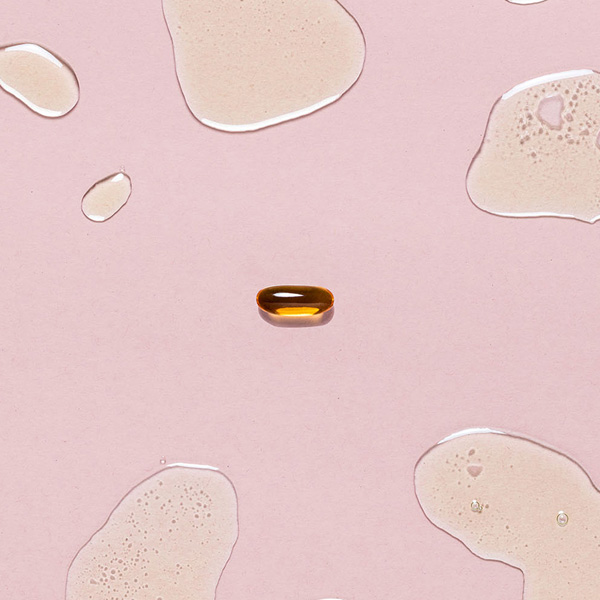
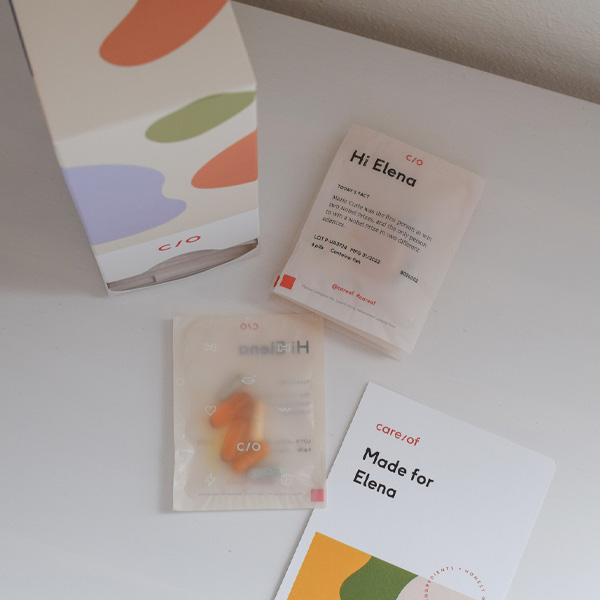
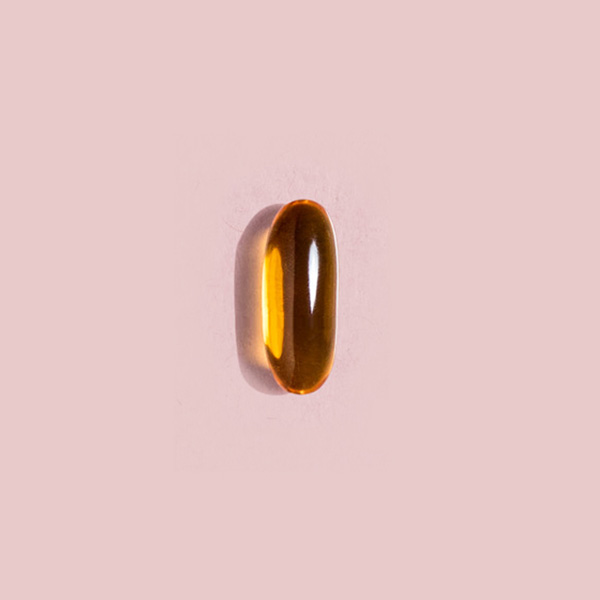

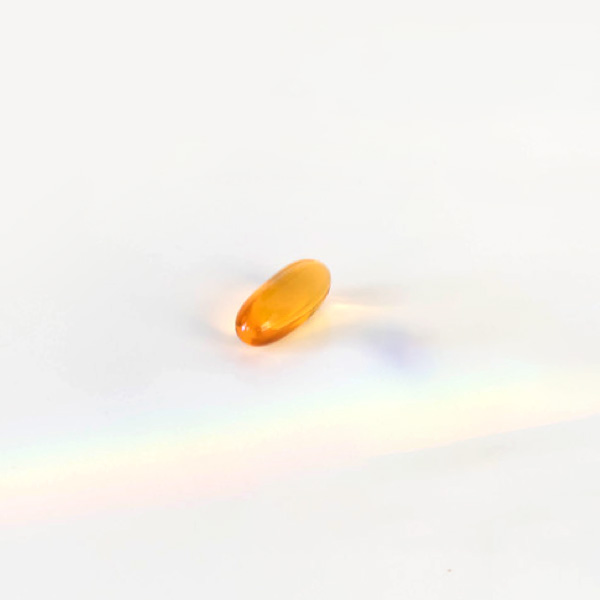
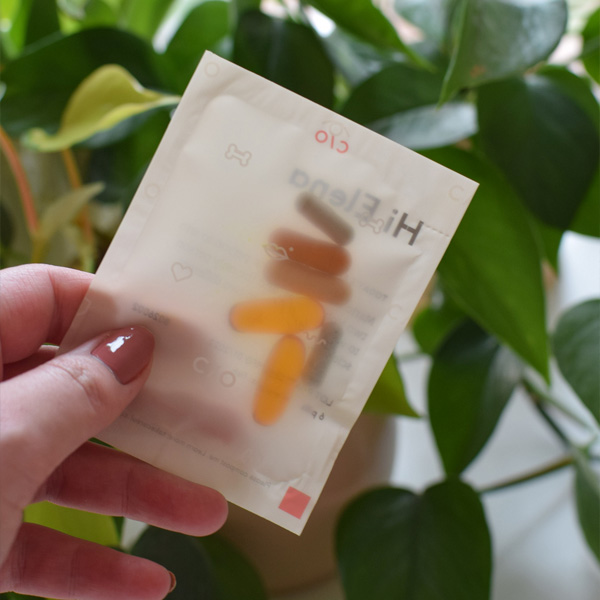

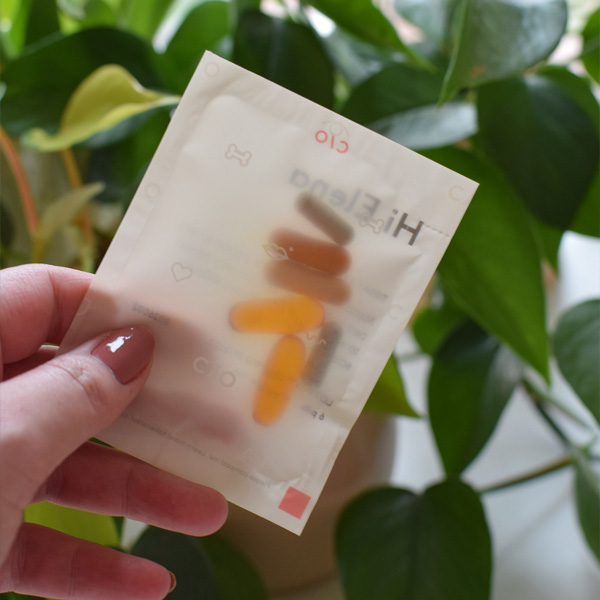
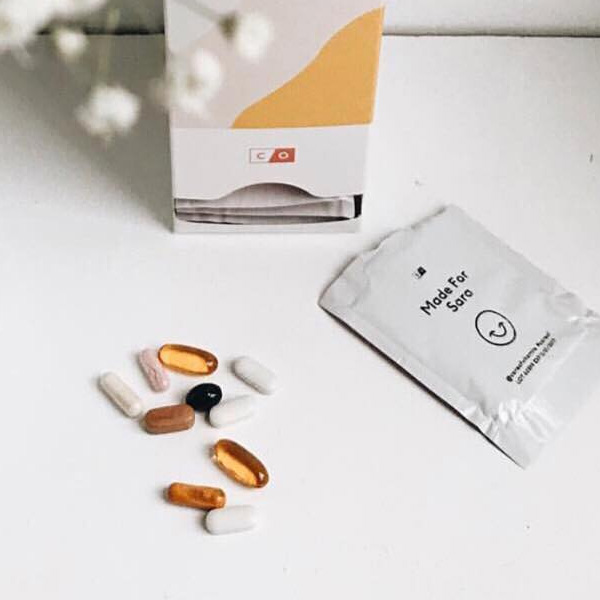





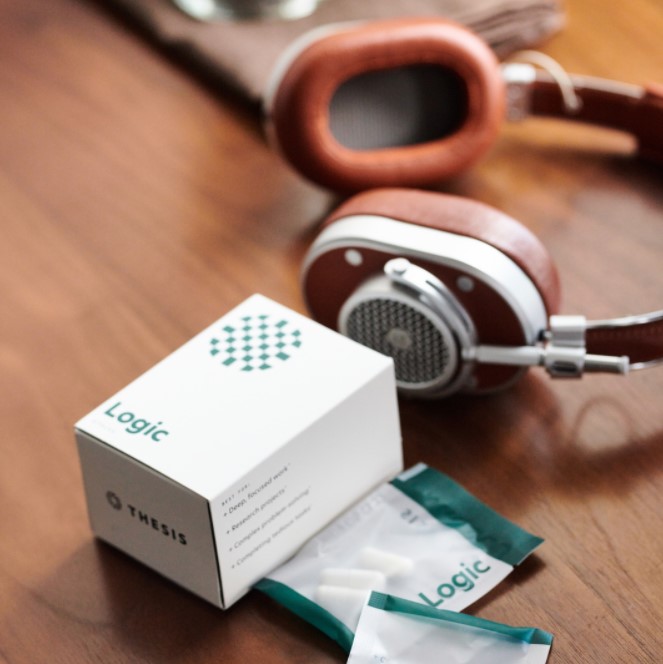


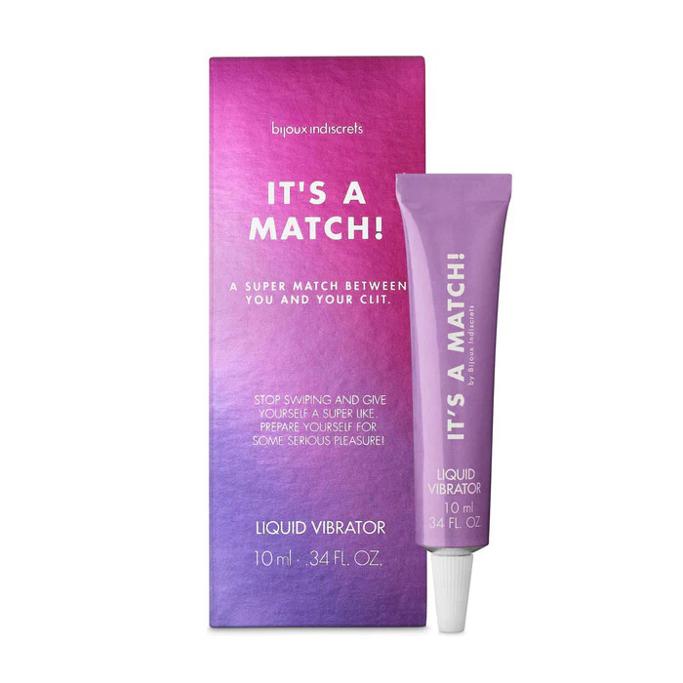
Ask the community or leave a comment
WRITE A REVIEWCustomer Reviews
Leave a review